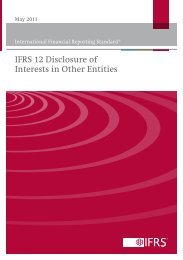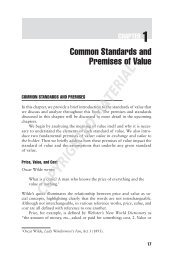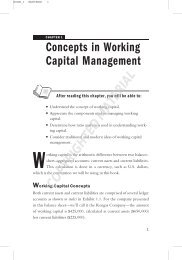ISSUE 5 2008 - Sweet & Maxwell
ISSUE 5 2008 - Sweet & Maxwell
ISSUE 5 2008 - Sweet & Maxwell
Create successful ePaper yourself
Turn your PDF publications into a flip-book with our unique Google optimized e-Paper software.
Crim. L.R. Trial 405<br />
R. v Ulcay<br />
Court of Appeal (Criminal Division); Sir Igor Judge P., Pitchers and Openshaw<br />
JJ.; October 19, 2007; [2007] EWCA Crim 2379.<br />
The defendant was charged with conspiracy to facilitate the commission of<br />
breaches of immigration law by individuals who were not citizens of the European<br />
Union. At the close of the prosecution case, his solicitors and counsel withdrew<br />
from the case on the ground of professional embarrassment, arising out the<br />
complete change in the defendant’s instructions. Fresh counsel was granted a<br />
representation order under reg.16(2)(a) of the Criminal Defence Service (General)<br />
(No.2) Regulations 2001 (SI 2001/1437). However, the judge refused to permit<br />
an extended adjournment, concluding that a shorter time was sufficient to allow<br />
counsel properly to prepare the case. Counsel withdrew. Fresh representatives<br />
similarly withdrew on failing to secure an extended adjournment. The defendant<br />
was convicted. He appealed.<br />
Consideration was given, inter alia, to reg.16 of the regulations and to in what<br />
circumstances counsel and solicitors instructed immediately before the beginning<br />
or during the course of the trial might refuse to accept instructions on behalf of the<br />
defendant because of difficulties created by judicial case management, in particular<br />
in relation to adjournments.<br />
Held, dismissing the appeal, (1) where a defendant completely changed his<br />
instructions, counsel would be presented with an impossible situation. If he could<br />
properly do so, of course he had to continue to represent his client, but there were<br />
occasions when he could not do so. It was for counsel to decide whether, consistent<br />
with his obligations to his client, and the court, and the rules of his profession,<br />
he was so professionally embarrassed that he could not continue with the case. If<br />
so, again consistent with his duty to the court, but without contravening the legal<br />
privilege which underpinned his professional relationship with his client, he should<br />
inform the court of his situation, providing such explanation as he could, to enable<br />
the judge to decide how to proceed. In the extremely unlikely event that a judge<br />
had grounds for believing that counsel or solicitors were not acting in good faith,<br />
and in accordance with the obligation owed to the court, their conduct should be<br />
referred to the Bar Council or Law Society.<br />
(2)InanapplicationforatransferofrepresentationintheCrownCourt,the<br />
grounds of the application and full particulars needed to be specified by the existing<br />
representatives. Next, the substantial compelling reason under reg.16(2)(a)(iv), if<br />
relied on, needed to be specified so that it could be identified. It would not generally<br />
be sufficient to allege a lack of care or competence of existing representatives. Only<br />
in extremely rare cases, and where full particulars were given in the application,<br />
would a general ground of loss of confidence or incompetence be entertained. It<br />
would not be sufficient simply to say that there was a breakdown in the relationship<br />
between solicitor and client. Many breakdowns were imagined rather than real<br />
or as a result of proper advice. The court could not oblige lawyers to continue<br />
to act when they had made a professional judgment that they were obliged, for<br />
compelling reasons, to withdraw from the case. That approach was consistent with<br />
the provisions of the regulations. One of the consistent requirements of reg.16 was<br />
that legal representatives should provide details of the nature of the duty which they<br />
believed required them to withdraw from the case, or the nature of the breakdown<br />
in the relationship between the representative and the client. Requirements such<br />
© SWEET &MAXWELL






